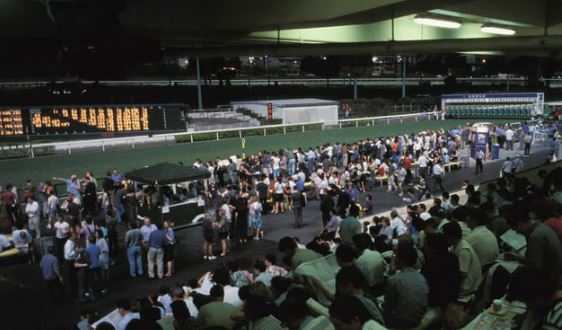How To Bet on Horses – UK Guide For Beginners
Horse racing has long been one of the most popular sports to bet on in the UK. If you’re just starting out, you’ll quickly find there’s a bit more to it than simply picking a horse at random.
That’s where we come in. At Bet442, we’ve put together this beginner-friendly guide to walk you through the basics—covering the main types of bets, how to read odds, and where you can place your bets.
Whether you’re following local races or major events like the Grand National, you’ll find the key information you need to get started. Read on to learn more.
How To Pick Horses To Bet On

If you choose to place a bet on horse racing, deciding which horse to back can seem a bit overwhelming at first. There are several factors you might want to consider, each offering some insight into how the race could unfold.
One place to start is by looking at the horse’s form—that is, its recent results and overall condition. A strong run of performances can be encouraging, though it’s worth keeping in mind that past results don’t guarantee future outcomes.
You might also want to look at the jockey and trainer. A skilled jockey and an experienced trainer can have a real impact on how a horse performs. Their track records can give you an idea of how well-prepared a horse might be for a particular race.
Then there are the race conditions. Some horses perform better on certain types of ground—like soft or firm going—so it can be useful to review how a horse and jockey have done under similar conditions in the past.
Finally, you could take a look at the odds. These reflect how likely each horse is thought to win, and they also affect your potential returns.
Types of Horse Racing Bets
Horse racing offers many ways to bet, ranging from straight wins to more complex combinations. Here are the main types you’ll come across in the UK:
Single
A bet on one horse to win a race.
Double
A bet on two horses in separate races; both must win for a payout.
Treble
A bet on three horses in separate races; all must win for a payout.
Accumulator
A single bet combining four or more selections. Every horse must win for the bettor to get paid.
Trixie
A combination of four bets across three selections: three doubles and one treble. A bettor needs at least two winners to get a return.
Patent
Covers all possible outcomes with three selections. Seven bets in total: three singles, three doubles, and one treble. Just one winner is enough for a potential return.
Yankee
A Yankee bet is a set of 11 bets using four selections: six doubles, four trebles, and one four-fold. At least two winners are needed for a return.
Lucky 15
Fifteen bets across four selections: four singles, six doubles, four trebles, and one four-fold. A single winner earns a return.
Canadian
A Canadian bet is twenty-six bets using five selections: 10 doubles, 10 trebles, 5 four-folds, and one five-fold. A bettor needs at least two winners for a payout.
Lucky 31
Thirty-one bets across five selections (five singles, 10 doubles, 10 trebles, 5 four-folds, one five-fold). Even one winner returns something.
Super Yankee
This is another name for the Canadian bet type.
Heinz
Fifty-seven bets involving six selections: 15 doubles, 20 trebles, 15 four-folds, 6 five-folds, and one six-fold. Two winners or more are required for a return.
Lucky 63
Lucky 63 adds singles to the Heinz structure: six singles, 15 doubles, 20 trebles, 15 four-folds, 6 five-folds, and one six-fold. A single winner pays out.
Super Heinz
The Super Heinz bet spreads a bettor’s stake across 120 bets with seven selections. Includes all possible multiples from doubles up to a seven-fold.
Goliath
A Goliath bet Covers 247 bets on eight selections, including every combination from double to eight-fold.
Round Robin
The Round Robin bet places ten bets on three selections: three doubles, one treble, and six up-and-down single stakes. The up-and-downs are conditional on the outcome of the other bets. Straight singles are not part of this structure.
Forecast
Predicts which horses will finish first and second, in the exact order.
Reverse Forecast
A Reverse Forecast bet predicts which horses will finish first and second, in any order.
Union Jack
The Union Jack bet consists of eight trebles spread across nine selections, arranged in a 3×3 grid. The trebles are assembled by rows, columns, and diagonals.
Each-Way
A bet with two parts: one for a win, one for a place. Both aspects can win, or just the place part, depending on how your horse finishes.
Placepot
A Tote pool bet where a bettor picks a placed horse in each of the first six races at a meeting.
Jackpot
Another Tote pool bet, this time trying to pick the winners of six specific races at a meeting.
Quinella
While not a standard UK term, a Quinella bet matches the Reverse Forecast (as described above): select the first two horses in any order.

How To Bet on Horses
If you choose to place a bet on horse racing, the process is fairly straightforward, whether you’re using a high street betting shop or an online bookmaker. Here’s a general outline of how it works in the UK:
To begin, you’ll want to choose a bookmaker that’s licensed by the UK Gambling Commission (UKGC). This helps ensure you’re betting in a safe, regulated environment. You can either visit a local betting shop or use a UK-licensed betting site, depending on what’s more convenient for you.

If you go with an online option, the first step is to register for an account. This usually involves sharing some personal details and completing age verification, as required by law. Many sites also offer mobile apps, which can make browsing and placing bets even more straightforward.
Once your account is set up, you’ll need to deposit funds. This can typically be done using a debit card or an e-wallet. It’s a good idea to decide on a budget beforehand—something that’s encouraged for anyone placing bets, regardless of experience.
From there, you can explore the list of upcoming races. Online platforms often organise events by date and location, making it simple to find the one you’re interested in.
Next, choose the type of bet you’d like to place (you’ll find the main types covered earlier), enter your stake, and confirm your selection.
After the race, you can check the result. Online bookmakers usually update outcomes quickly, while high street shops display results in-store.
If you follow these steps, you’ll have everything in place to place a bet—if you decide it’s right for you.
Horse Racing Odds Explained
If you choose to place a bet on horse racing, it’s beneficial to have a basic understanding of how odds work. Odds not only show how much you could potentially win but also reflect how likely a horse is considered to win the race.
Fractional Odds
Fractional odds is the most commonly used format in the UK—shown as something like 5/1 or 7/2. The first number tells you how much you’ll win compared to the second, which is your stake. So, if you place a £1 bet at 5/1, you’d get £5 in profit plus your £1 stake back, for a total return of £6.
Decimal Odds
Some bookmakers display odds in decimal format, which shows your total return—including your stake—for every £1 bet. For example, decimal odds of 6.0 mean you’d receive £6 back for every £1 if your bet wins.
Odds-On and Odds-Against
You might also come across terms like odds-on and odds-against. Odds-on (such as 1/2) mean the potential return is less than your stake, as the horse is considered more likely to win. Odds-against (like 5/1) offer higher potential returns and generally indicate a less favoured outcome.
Understanding these formats can help you weigh up your options—if you decide to get involved.
How Many Places Are Paid In Horse Racing?
If you’re thinking about placing a bet, it’s useful to know how many places are paid out—particularly for each-way bets, where you could still get a return even if your horse doesn’t finish first.
The number of places that pay out can vary depending on the race, the size of the field, and the bookmaker you’re using. As a general guide:
- Fewer than 5 runners: Only win bets are accepted—place terms do not apply.
- 5 to 7 runners: Each-way bets usually cover the top two places.
- 8 to 15 runners: The top three places are typically paid.
- Handicap races with 16 or more runners: The top four places are usually paid.
Some bookmakers may offer extra places during major events or as part of special promotions. If you’re placing a bet, it’s always a good idea to check the specific terms for that race, as these can differ from one event or bookmaker to the next.
Bet on Horse Racing at Bet442
If you’re looking to get involved with horse racing betting, Bet442 offers a variety of betting markets to choose from. We’ve built a platform that’s easy to use, with responsive customer support and access to a wide selection of racing events from across the UK and beyond.
Whether you prefer placing a single bet or exploring multiples like accumulators, we offer all the main options so you can choose what suits you best. As a site licensed and regulated by the UKGC, we’re committed to providing a secure, responsible betting environment.
With a full suite of safer gambling tools available, you can set your limits and manage your betting. Feel free to visit Bet442 and see why so many people place their horse racing bets with us.
*All values (Bet Levels, Maximum Wins etc.) mentioned in relation to these games are subject to change at any time. Game features mentioned may not be available in some jurisdictions.
**The information provided in this blog is intended for educational purposes and should not be construed as betting advice or a guarantee of success. Always gamble responsibly.

